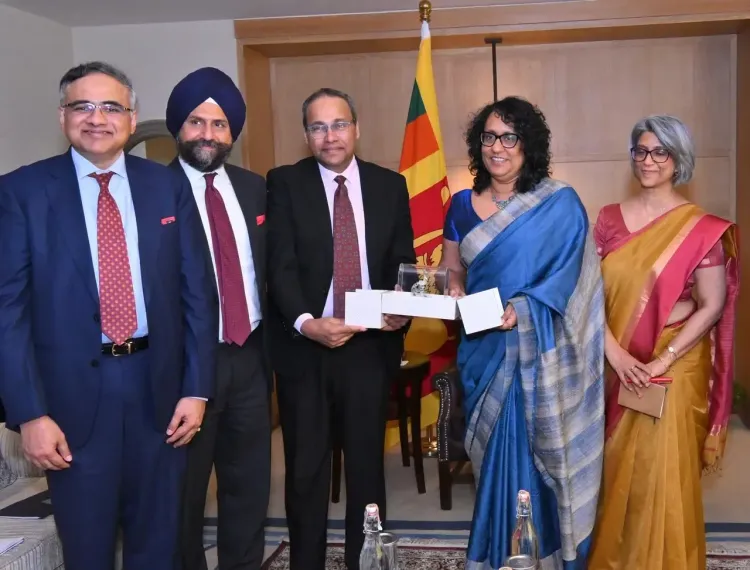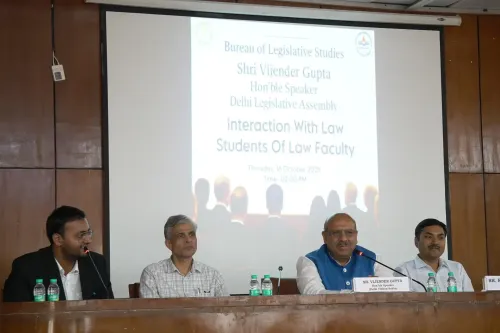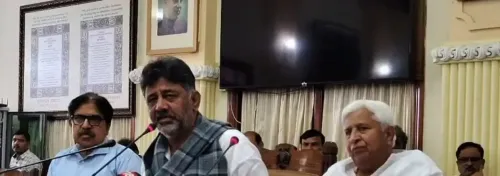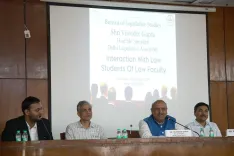Can Sri Lanka Prime Minister Amarasuriya Drive Digital Transformation with India's Help?

Synopsis
Key Takeaways
- Sri Lanka is pursuing digital transformation.
- Collaboration with India is key.
- Focus on education and innovation.
- Economic and Technological Cooperation Agreement is crucial.
- Aim for sustainable and inclusive growth.
New Delhi, Oct 16 (NationPress) Sri Lanka's Prime Minister Harini Amarasuriya on Thursday requested India's assistance in advancing digital transformation within the island nation, leveraging human capital, innovation, and partnerships.
"We aspire to cultivate a generation of students who are not merely learners but also creators, problem solvers, and innovators—igniting a national ecosystem of AI hubs, incubators, and startups with a global footprint," she articulated.
PM Amarasuriya invited the Indian industry to collaborate with Sri Lanka in realizing this vision, pointing to India's internationally acclaimed strengths in educational technology, AI, and startup ecosystems.
"No country can progress towards sustainability without investing in its populace," she stated during a high-profile meeting with Indian industry leaders.
Highlighting Sri Lanka's enduring dedication to fostering its human capital, Amarasuriya underscored the nation's commitment to empowering its citizens through education, skills, and creativity, which are essential for achieving sustainable development.
The Prime Minister emphasized the multifaceted collaboration between India and Sri Lanka, especially in healthcare, education, and skilling. She detailed a series of transformative reforms initiated by her administration aimed at diminishing inequality, modernizing educational facilities, and digitizing classrooms—initiatives that pave the way for new collaborative opportunities with India.
The interaction saw vibrant participation from industry leaders and stakeholders from both nations, focusing on digital transformation, renewable energy, infrastructure, and skill development. Both parties concurred that enhancing cooperation in AI, innovation, and digital public infrastructure will be crucial for fostering inclusive and sustainable economic growth.
CII President-designate and Tata Chemicals Ltd Managing Director & CEO, R. Mukundan, underscored the strengthening ties between the two countries. "India is Sri Lanka's closest neighbor and a key component of India's 'Neighbourhood First' policy and MAHASAGAR vision," he remarked.
Mukundan also advocated for the swift conclusion of the Economic and Technological Cooperation Agreement (ETCA), which he stated would unlock new avenues in trade, innovation, logistics, and inclusive prosperity.
CII AI Forum Chairman Tejpreet Chopra highlighted India's leadership in digital public infrastructure and its potential to assist Sri Lanka in achieving its digital inclusion and entrepreneurship objectives.
Tribhuvan Darbari, Managing Director & CEO of Texmaco Defence Systems, discussed the momentum generated by Indian-supported railway projects in Sri Lanka, which enhance north-south connectivity and logistics.
Professor K. Chelvakumar from IIT Gandhinagar offered collaboration in STEM education through the Centre for Creative Learning, which has positively impacted over 500,000 students in India.









